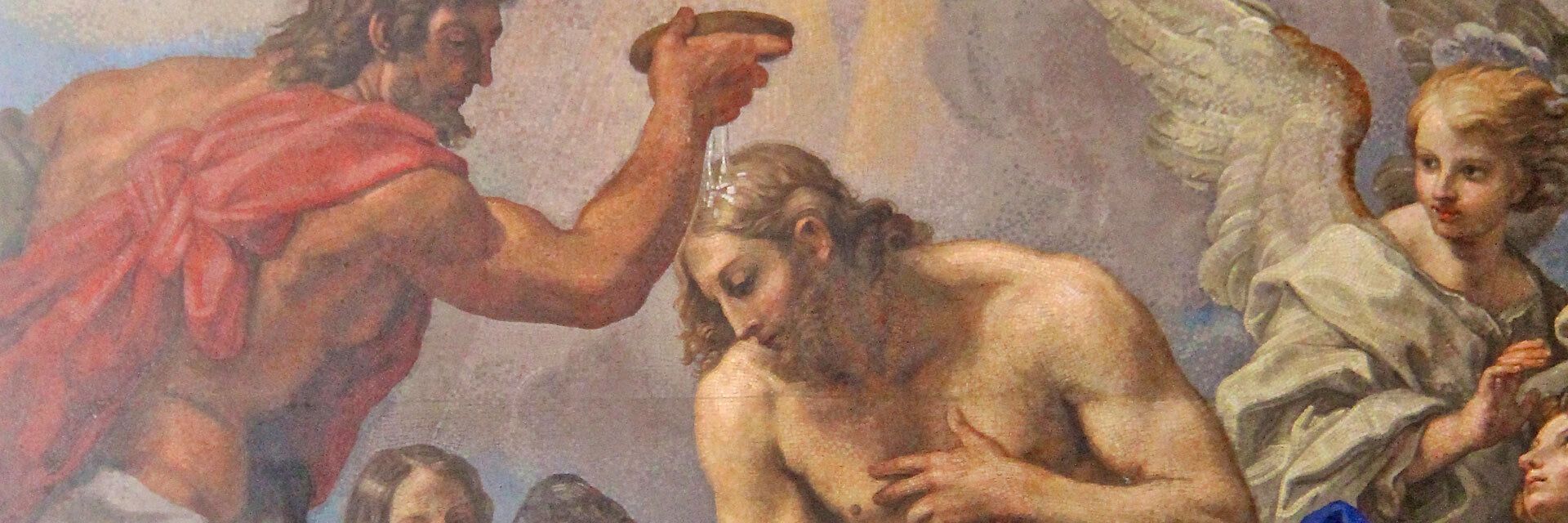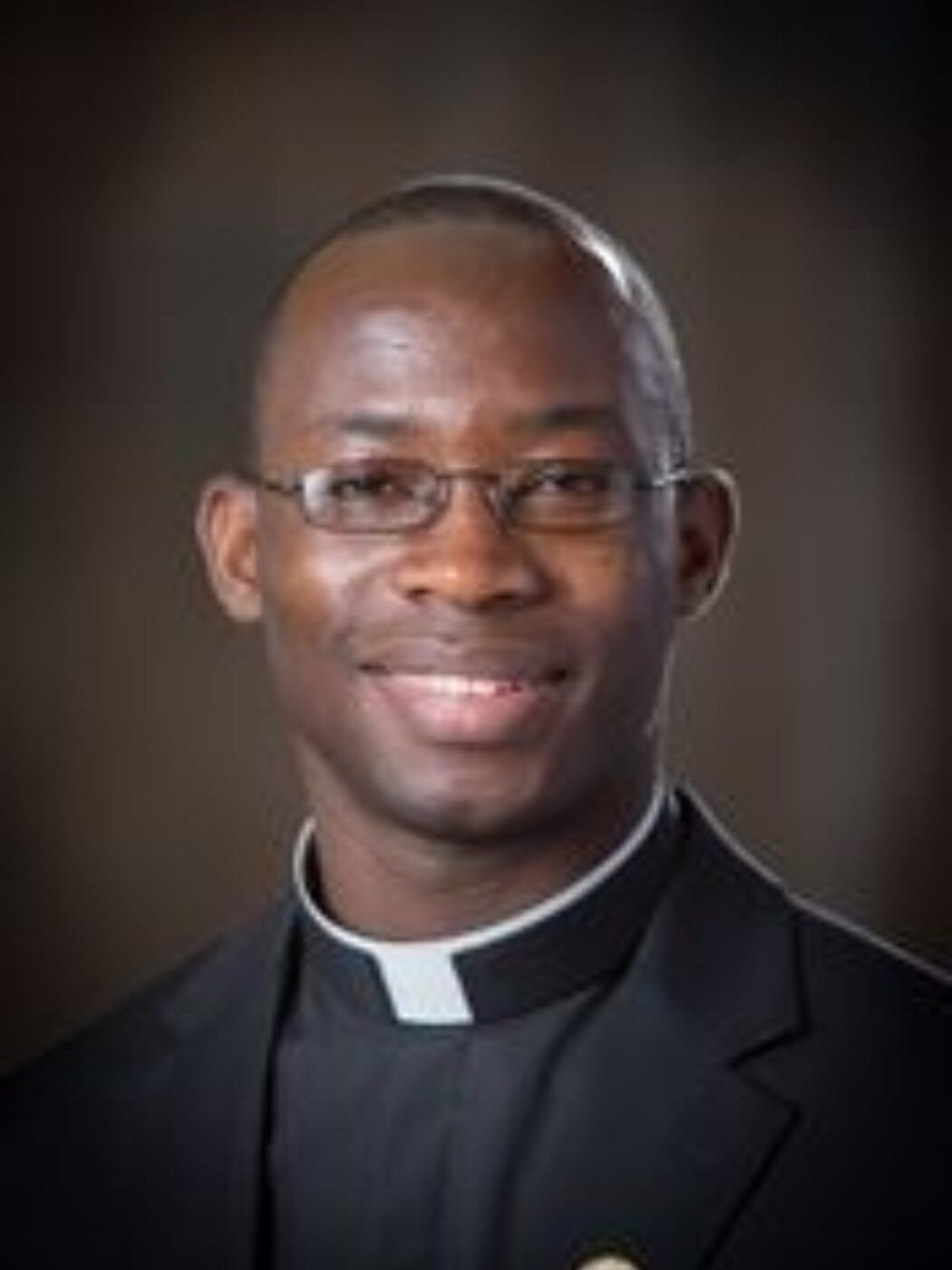The feast of the Baptism of the Lord marks the end of Christmastide and the beginning of Ordinary Time. So, as we come to the end of this season, let us recall again the reason for Christmas, the reason the Second Person of the Blessed Trinity, the Incarnate Word took our human flesh and nature.
After God created our first parents, Adam and Eve, while still in the garden where they walked in the presence of God, they were deceived by the evil one to disobey God. By the very act of disobedience, they lost their privileged status of dwelling and walking with God face to face. But since God always wills his creatures to be in union with him and to dwell with him, he started the plan of redemption of the offsprings of Adam and Eve. Hence, just after creation, the plan and work of redemption and salvation began with the Protoevangelium (cf. Gen 3:15), the foretelling of the coming of the New Adam, the Son of Man, Jesus Christ, born of the New Eve, the Blessed Virgin Mary, who is to crush the head of that ancient serpent and free us from slavery to sin.
Throughout Christian history, one of the greatest joys of Christmas is the joyful arrival of Emmanuel, Jesus Christ, who is God among us, who has come to liberate us from the shackles of sin and death, the Messiah and Mighty Savior, who has come to save us from our enemies and from the hand of all who hate us, namely the evil one. The canticle of Zechariah summaries this joy so beautifully (cf. Lk 1:67–79). This is the reason for Christmas.
John 3:16 proclaims; “For God so loved the world that he gave his only Son, so that everyone who believes in him may not perish but may have eternal life.” This love of God is so great that when the time came for him to taken on our human flesh and nature, he was born as a baby, dependent on the care, love and protection of human parents. He could have come down from heaven with great acclaim, hosts of angels, clashing of cymbals and trumpet blasts, but he chose to come to us as a newborn baby, on a cold winter night. Born not even in a palace, as for a king and firstborn of all creation, nor in a hospital or a decent place, like one would expect for the birth of a child, all things being equal. No! He was born in a manger, in a smelly and uncomfortable sheep barn, the poorest of all conditions any one of us could ever imagine. This is to point to us how much God identifies with us, how much the Incarnate Word embraces our nature, and hence perfectly understands it. So, when he bids us come to him, when he bids us follow him, when he bids us learn from him (cf. Matt 11:28–30), he means it because he has taken to himself our nature and so understands our nature, he has perfected it and bids us come to him so that he can teach us and help us by his grace to perfect ours individually. The Second Person of the Blessed Trinity came on Christmas to fulfill his Father’s will and plan of always desiring his creatures to be in perfect union with him and to dwell with him.

This feast of the Baptism of Our Lord, according to the Catechism of the Catholic Church, signifies Jesus’s acceptance of his mission as God’s suffering Servant, who allows himself to be numbered among sinful men, although he is the Lamb of God that takes away the sin of the world. By his baptism, he is coming to “fulfill all righteousness,” that is, completely submitting himself out of love for us to the Father’s will (cf. CCC, 536). His birth on Christmas is a preparation of his death on Good Friday, his baptism today points to his baptism of death for the remission of our sins. Hence, at that moment of his baptism, the heavens open and the Father proclaims his delight in his Son (cf. Lk 3:22).
At Jesus’s baptism, the heavens were opened, the heavens that Adam’s sin had closed, and the waters were sanctified by the descent of Jesus and the Spirit, foreshadowing the new creation (cf. CCC, 536). This is why the Church teaches and reminds us that through our baptism, we are sacramentally configured to Jesus’s baptism, the baptism of his death and resurrection. We are called to “enter into this mystery of humble self-abasement and repentance, go down into the water with Jesus in order to rise with him, be reborn of water and the Spirit so as to become the Father’s beloved son in the Son and ‘walk in newness of life’” (CCC, 537). This the feast we celebrate today.
So, brothers and sisters, as we conclude the Christmas season, we humbly ask our Almighty Father to grant us the grace to participate in the intimacy of the life of the Blessed Trinity, to come to walk with him and dwell with him. By our baptism, we have been claimed for God and have been made adopted children and co-heirs with Jesus to call God our Father as we pray in today’s Collect: “Almighty ever-living God, who, when Christ had been baptized in the River Jordan and as the Holy Spirit descended upon him, solemnly declared him your beloved Son, grant that your children by adoption, reborn of water and the Holy Spirit, may always be well pleasing to you,” Amen!
One more time, Merry and Blessed Christmas to you!


